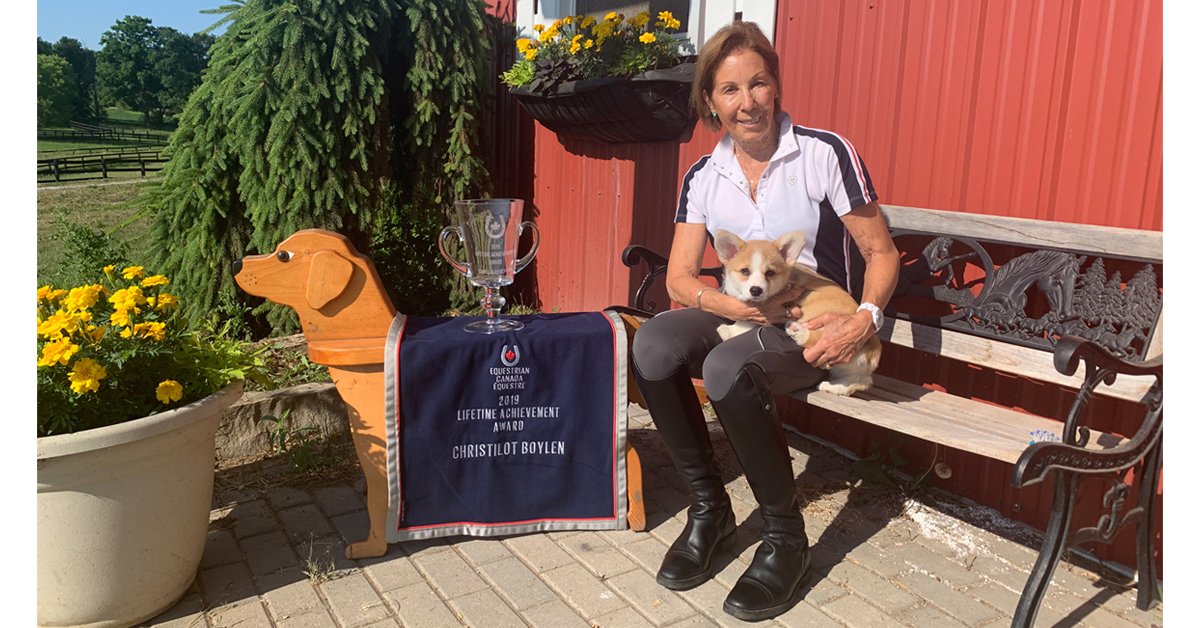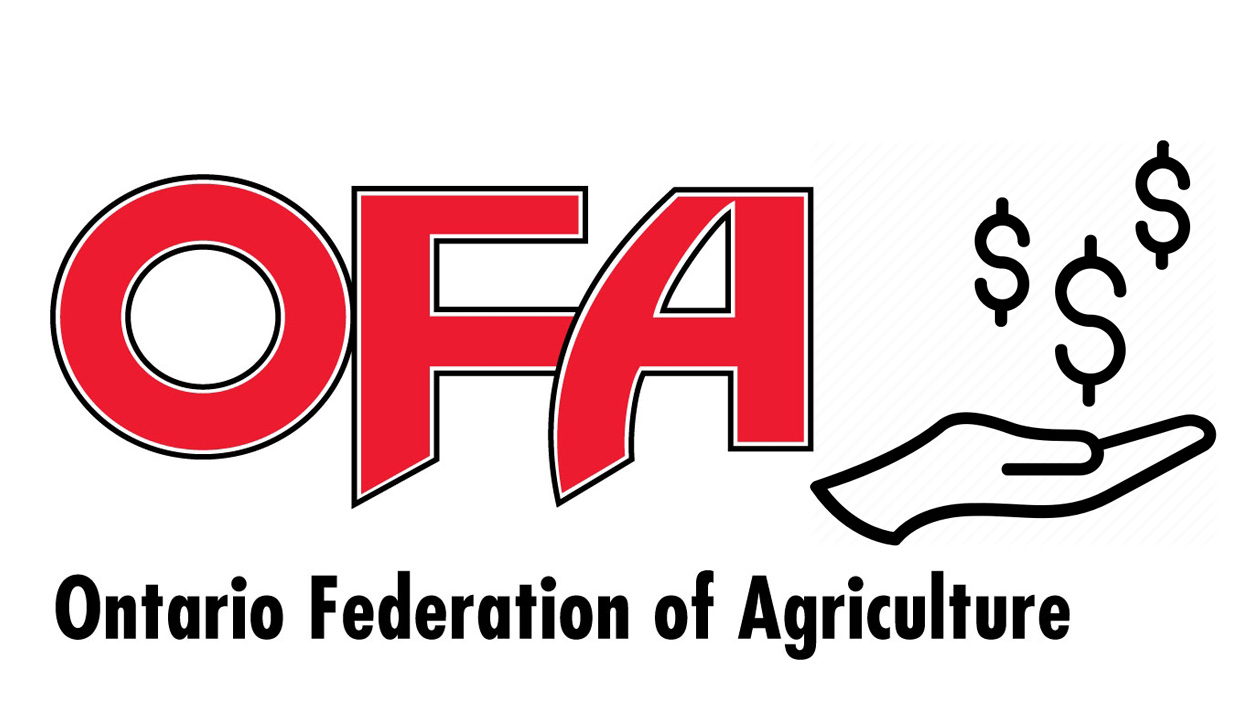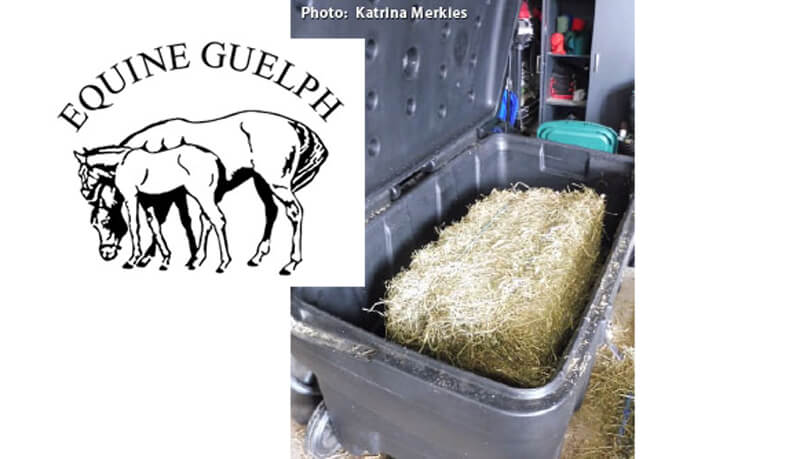Results are in from the Equine Guelph funded research that marks the first study to investigate steamed, soaked and dry hay in Ontario. Tiana Owens, a University of Guelph graduate student involved in the study, presented these results during her thesis defence last month. The research team, which also includes Madeline Barnes, Vanessa Gargano, Wilfredo D. Mansilla, Katrina Merkies and Anna K. Shoveller, found that steaming hay may be a superior method for treating hay when it’s being used to feed healthy performance horses.
The researchers compared nutrient content, feed preference, and glycemic response between dry, soaked and steamed timothy-alfalfa hay grown in Ontario. Standardbred racehorses were used in the study for researchers to examine which hay treatment may be most suitable for performance horses. Owens explains, “Horse caregivers often soak or steam hay to reduce its non-structural carbohydrate (NCS), including water soluble carbohydrates (WSCs). A high dietary intake of these carbohydrates can be detrimental to some horses.” However, these practices are based on research from the United Kingdom, so information on Ontario hay was needed. Check out Equine Guelph’s first article on this research project for more information on the study background and design.
Owens explains, “Soaking hay reduced the non-structural carbohydrate content of Canadian first-cut mixed timothy-alfalfa hay, as anticipated. Equine athletes have very high energy and nutrient demands and steaming hay was an effective method to conserve these nutrients to maximize nutrient intake. These horses also preferred to eat steamed or dry hay over soaked hay, further supporting a recommendation that steaming is a superior method for treating hay for performance horses.” She adds that, “These results, combined with the loss of nutrients when soaking hay, should make performance horse owners consider steaming their hay to better maintain its nutritional integrity.”
Equine Guelph congratulates Owens on the successful defence of her graduate work. Stay tuned to read the future publication of this work. If you’re interested in learning more about hay and your horse’s nutritional needs, check out Equine Guelph’s Equine Nutrition course offered this fall.
More from Horse Sport:





